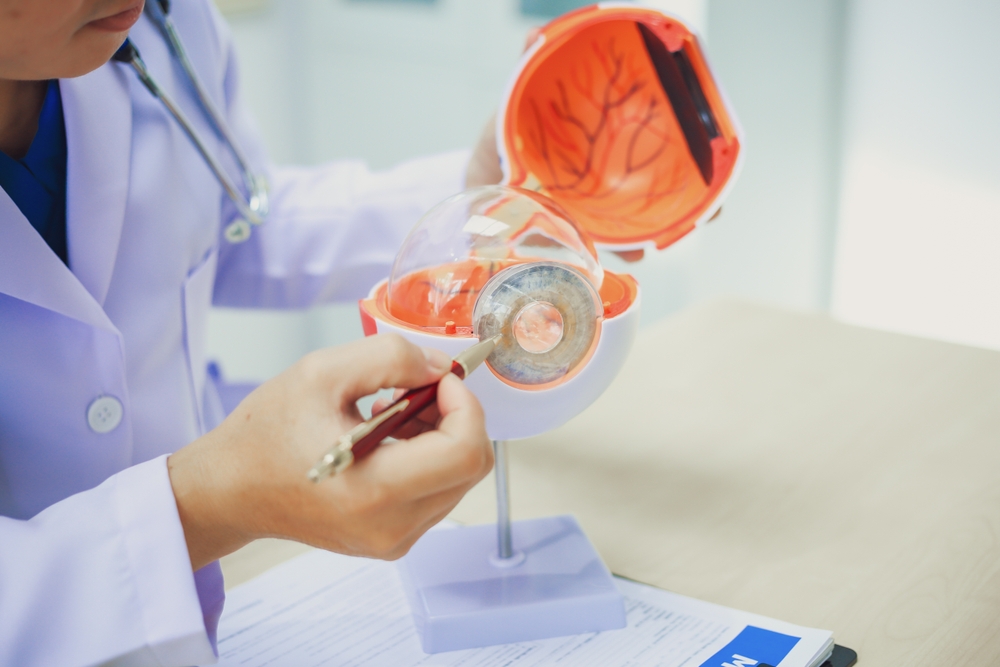
Myopia is a growing concern worldwide. While it may seem like a simple vision problem corrected with glasses or contact lenses, myopia can lead to more severe eye conditions if left unmanaged. High myopia, in particular, increases the risk of eye diseases that can impact vision in the long run. Understanding these risks and exploring effective myopia management options is crucial for preserving long-term eye health.
The Risks Associated with Myopia Progression
When myopia progresses to higher levels, the eye elongates excessively, causing structural changes that increase the risk of several serious eye conditions, including:
• Retinal Detachment – As the eye elongates, the retina becomes more stretched and fragile, increasing the likelihood of retinal tears and detachment, which can lead to vision loss if not treated promptly.
• Glaucoma – Myopic individuals have a higher risk of developing glaucoma, a condition that damages the optic nerve and can result in irreversible vision loss if left untreated.
• Cataracts – People with high myopia may develop cataracts earlier in life. Cataracts cause clouding of the eye’s lens, leading to blurry vision and, in severe cases, blindness without surgical intervention.
• Myopic Maculopathy – This condition involves the thinning and deterioration of the retina’s central area, known as the macula, which is essential for sharp vision. Myopic maculopathy can cause significant vision impairment.
The Importance of Myopia Management
Given the potential complications associated with myopia, managing its progression early is key to reducing the risk of these conditions. Fortunately, several myopia control methods have been developed to slow its advancement, particularly in children and young adults.
Atropine Eye Drops
Low-dose atropine eye drops have been shown to effectively slow the progression of myopia in children. These drops work by relaxing the eye’s focusing mechanism, reducing strain that may contribute to myopia progression. Regular monitoring by a doctor ensures that the dosage remains effective while maintaining overall eye health. This treatment is often used in combination with other myopia management strategies for optimal results.
Orthokeratology (Corneal Reshaping Therapy)
Orthokeratology (Ortho-K) is a non-surgical treatment that involves wearing specially designed gas-permeable contact lenses overnight. These lenses temporarily reshape the cornea, providing clear daytime vision without the need for glasses or contacts. Ortho-K has also been found to slow myopia progression in children by reducing the eye’s elongation. By gently flattening the cornea while the wearer sleeps, Ortho-K not only corrects vision but also alters how light focuses on the retina, which may play a role in slowing myopia development. It is a popular choice for active children and teens who want freedom from daytime eyewear while also managing their myopia.
Multifocal Contact Lenses
Multifocal contact lenses are designed with different focusing powers to help control myopia progression while also correcting vision. Unlike standard contact lenses, multifocal lenses have multiple prescription zones that help the eye focus at different distances, reducing the stimulus for excessive eye elongation. Studies have shown that multifocal lenses can be an effective tool in slowing the worsening of nearsightedness, making them an excellent choice for children and teenagers looking for a convenient myopia management option.
Schedule Your Child’s Eye Exam Today
Myopia is more than just a vision issue—it is a condition that, if left unmanaged, can lead to serious eye diseases later in life. With the right intervention, such as atropine eye drops, Ortho-K, and multifocal contact lenses, myopia progression can be slowed, helping to preserve long-term eye health.
If your child have myopia, schedule an eye exam with Pinnacle Eye Group of Lambertville to explore the best treatment options. Visit our office in Lambertville, Michigan, or call (734) 562-0099 to book an appointment today.







